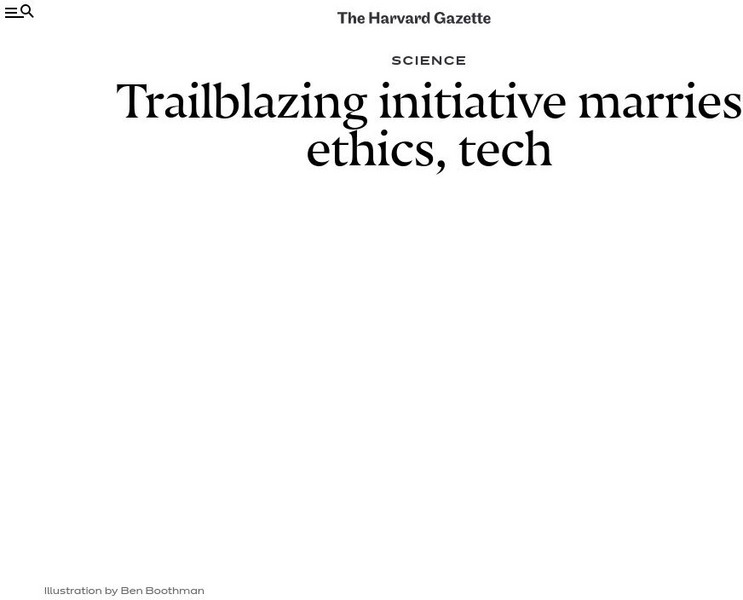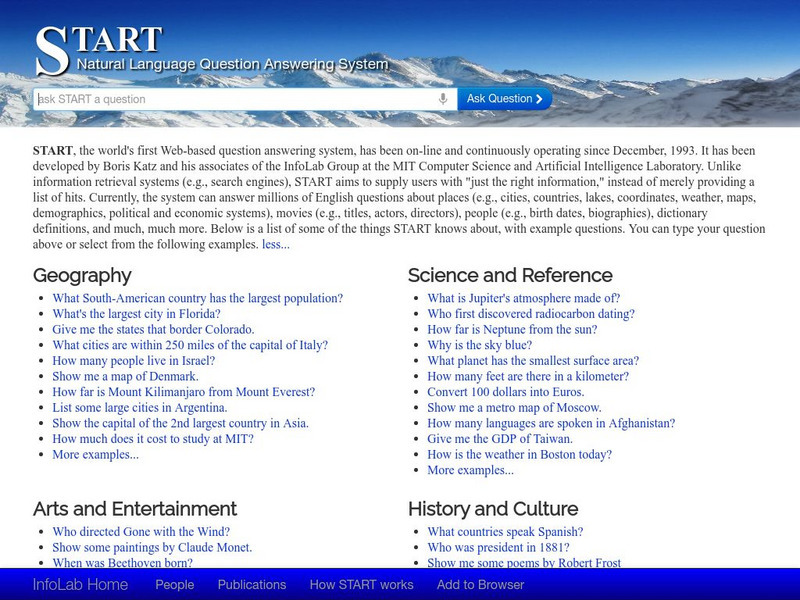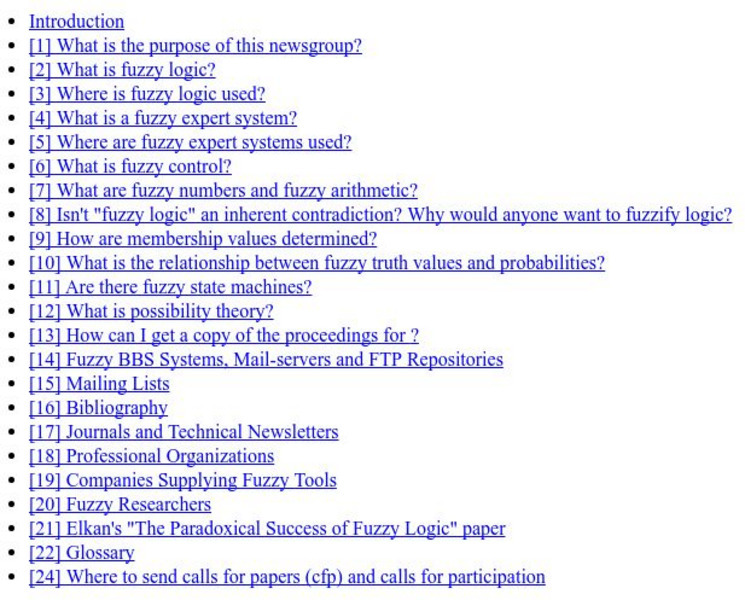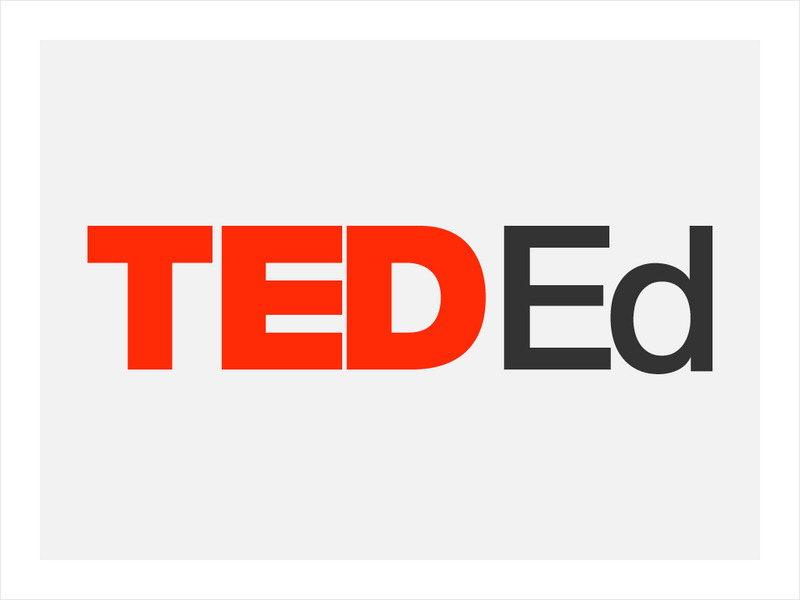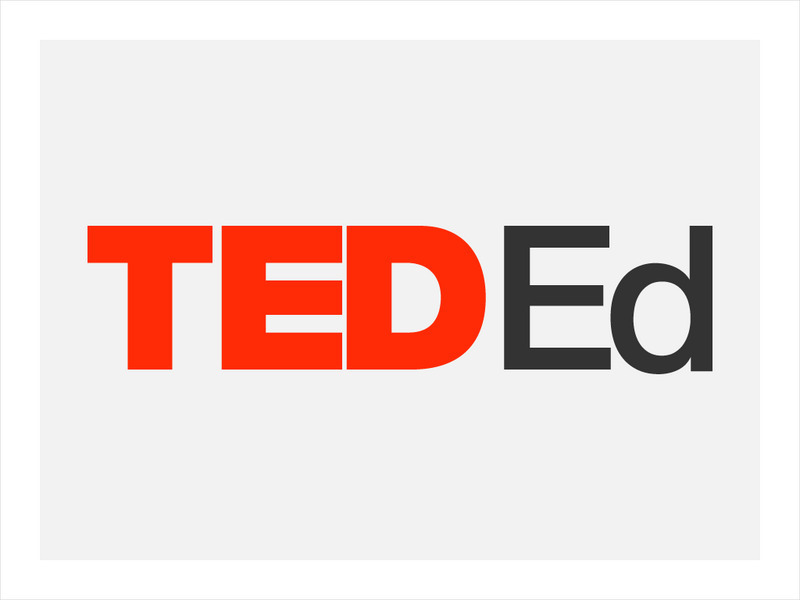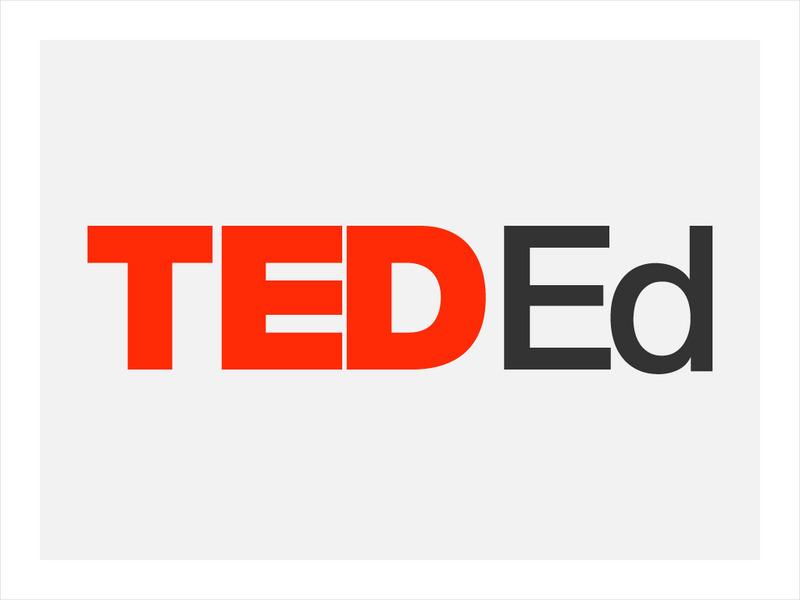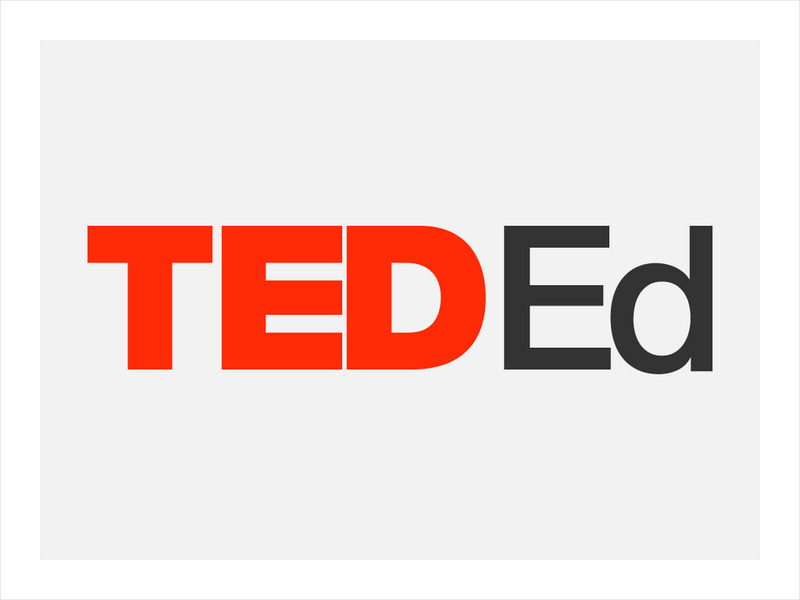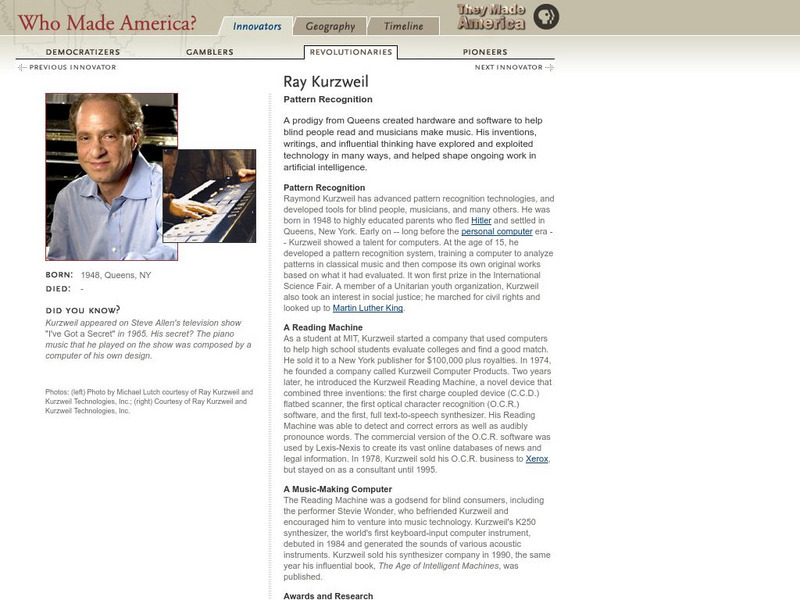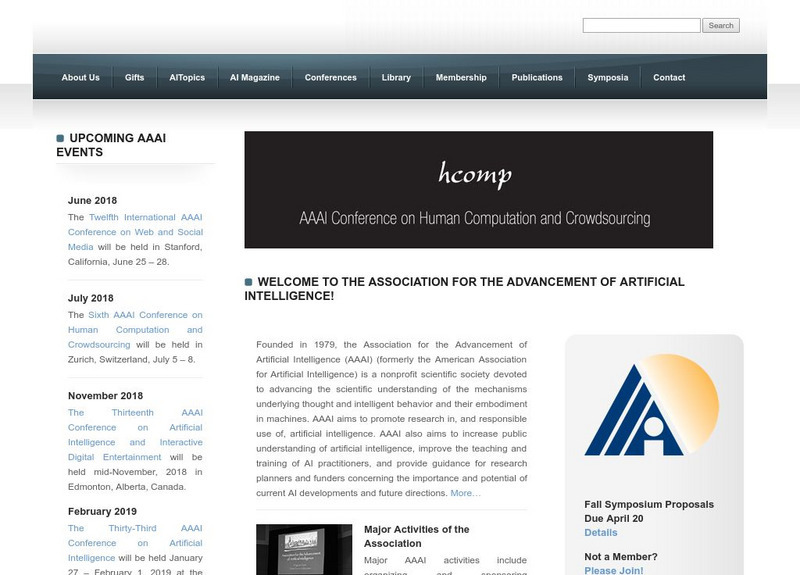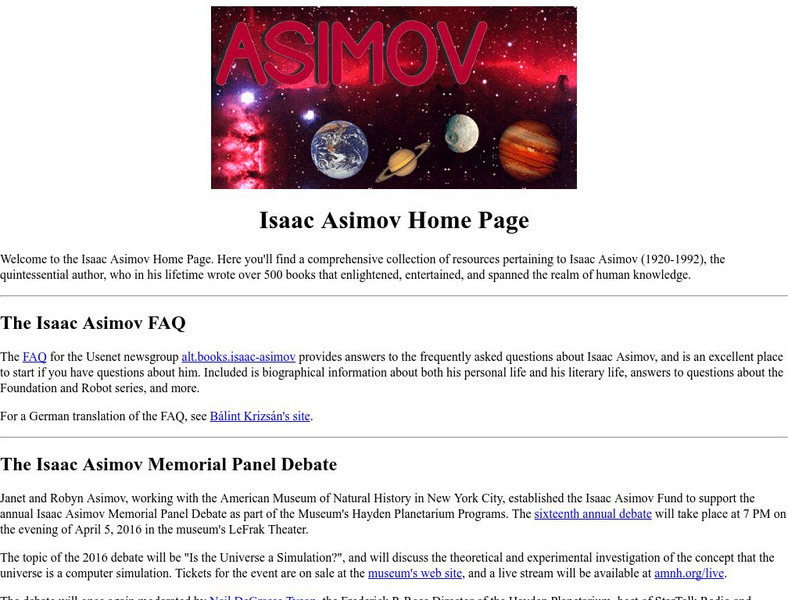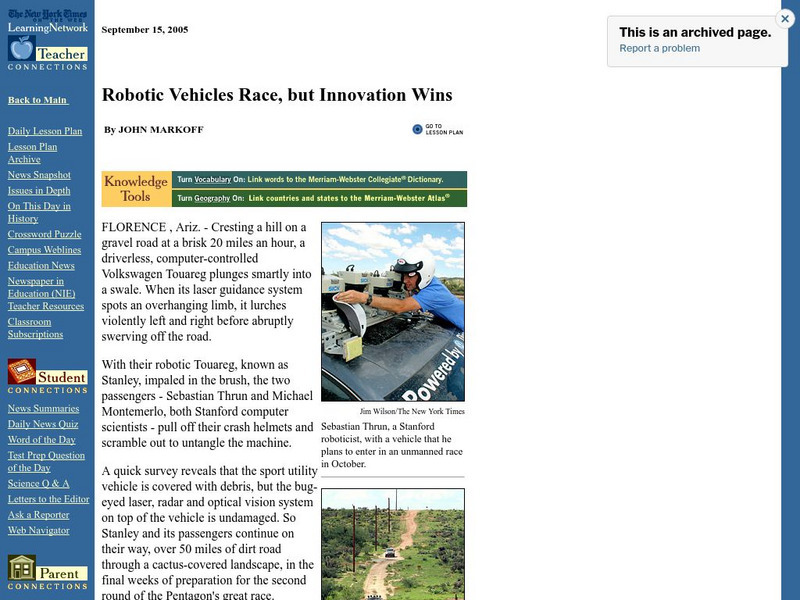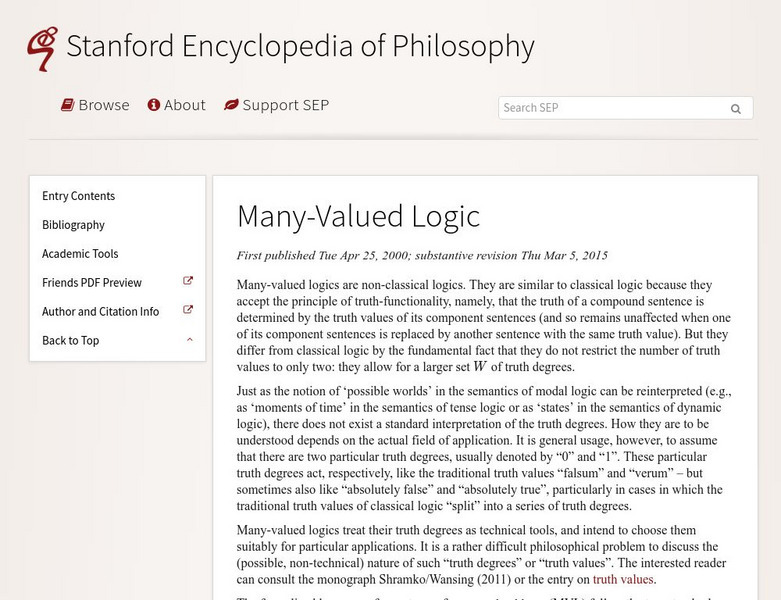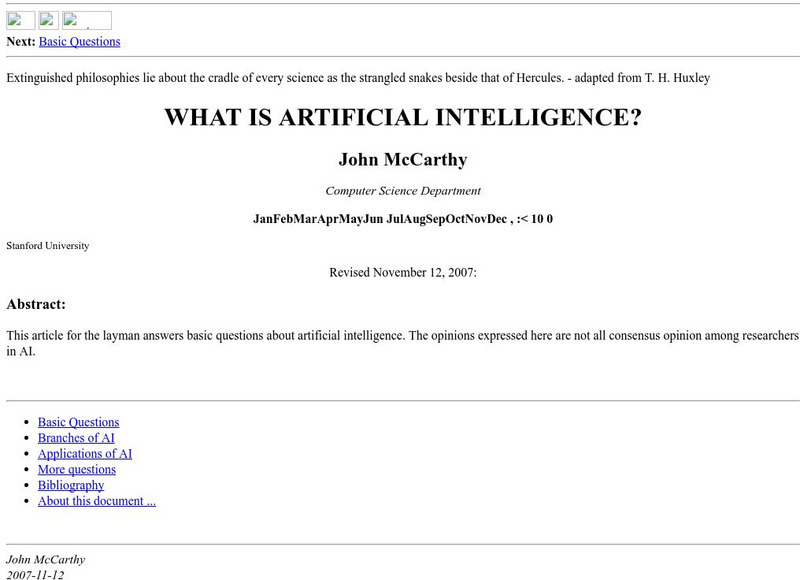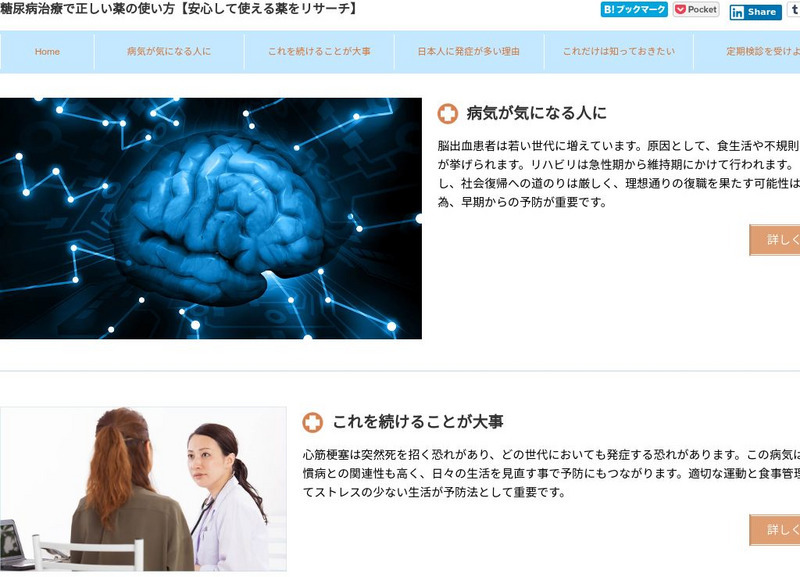Other
Youth Time Magazine: The Impact of Technology on the Future of Work
An interview with David Timis who studies the impact of artificial intelligence on the future of work. He discusses how youth can prepare themselves. Includes a 30-minute video. (Published August 30, 2020)
Harvard University
The Harvard Gazette: Trailblazing Initiative Marries Ethics, Tech
First in a four-part series that taps the expertise of the Harvard community to examine the promise and potential pitfalls of the rising age of artificial intelligence and machine learning, and how to humanize it. Students are asked to...
Other
Education Services Australia: Digital Technologies Hub: Systems Thinking and Ai Applications
This lesson takes a systems thinking approach to understanding the place of artificial intelligence (AI) as a component within solutions to real-world problems.
Massachusetts Institute of Technology
Mit: The Start Natural Language Question Answering System
This site contains information about and example of a natural language artificial intelligence system.
Carnegie Mellon University
Carnegie Mellon: What Is a Fuzzy Expert System?
This site defines what a fuzzy expert system is and provides examples.
TED Talks
Ted: Ted Ed: Can Machines Read Your Emotions?
Computers can beat us in board games, transcribe speech, and instantly identify almost any object. But will future robots go further by learning to figure out what we're feeling? Kostas Karpouzis imagines a future where machines and the...
TED Talks
Ted: Ted Ed: The Turing Test: Can a Computer Pass for a Human?
What is consciousness? Can an artificial machine really think? For many, these have been vital considerations for the future of artificial intelligence. But British computer scientist Alan Turing decided to disregard all these questions...
TED Talks
Ted: Ted Ed: Can Robots Be Creative?
People have been grappling with the question of artificial creativity- alongside the question of artificial intelligence- for over 170 years. For instance, could we program machines to create high quality original music? And if we do, is...
TED Talks
Ted: Ted Ed: Make Robots Smarter
There are three major rules that we want our robots to follow: do not harm a human, obey us, and protect us. The prerequisite for these rules? We need to make robots smarter. Ayanna Howard explains how robots can become smarter (hint: it...
PBS
Pbs: Who Made America?: Innovators: Ray Kurzweil
A prodigy from Queens created hardware and software to help blind people read and musicians make music. His inventions, writings, and influential thinking have explored and exploited technology in many ways, and helped shape ongoing work...
Other
Artificial Intelligence Depot
The Artificial Intelligence Depot resource contains general information and a listing of publications about artificial intelligence.
Other
Welcome to Ai Topics: Home Page
A site run by the American Association for Artificial Intelligence. Provides information on a number of AI topics, including Expert Systems. A great site for students and teachers.
Other
Isaac Asimov Home Page
This resource covers every aspect of Asimov's prolific writing career. Biographical information, movie connections, short story collections, lists of Asmiov's works are all here.
Other
Welcome to Genetic Programming: Homepage
A very comprehensive site from genetic-programming.org that has theses, essays, articles, and links all relating to genetic programming.
New York Times
New York Times: Robotic Vehicles Race
An article about the latest in robotic vehicle technology. Click on link to a classroom lesson plan.
Famous Scientists
Famous Scientists: Alan Turing
Find out how Alan Turing became widely considered to be the father of theoretical computer science and artificial intelligence.
Stanford University
Many Valued Logic/stanford Encyclopedia of Philosophy
Explains the logical theory of "many-valued logic," a modern alternative to classic logic. Sections address its history, notation and proofs, and applications to linguistics, mathematics, philosophy, and artificial intelligence. For the...
Other
Monash University: Prolog Tutorial
A brief tutorial for the Prolog programming language, with a "toy" online Prolog interpreter.
Other
Webopedia.com: Artificial Intelligence
Includes a concise definition of artificial intelligence and an explanation of the different areas in which artificial intelligence is used.
Stanford University
Stanford University: What Is Artificial Intelligence?
An overview of artificial intelligence (AI), the different branches of AI, applications of artificial intelligence, and the like.
Other
Smith College: Talk to Me
Experience engineering by applying science and math in the service of humanity through a story. Read the online novel, interact with the characters, and explore some engineering concepts.
University of Michigan
University of Michigan: The Lisp Programming Language
A description of the Lisp programming language, including history and sample programs.
University of Michigan
University of Michigan: Lisp Programming Language
Explore he Lisp programming language.
University of Michigan
University of Michigan: The Prolog Programming Language
A description of the Prolog programming language, including history and program samples.



